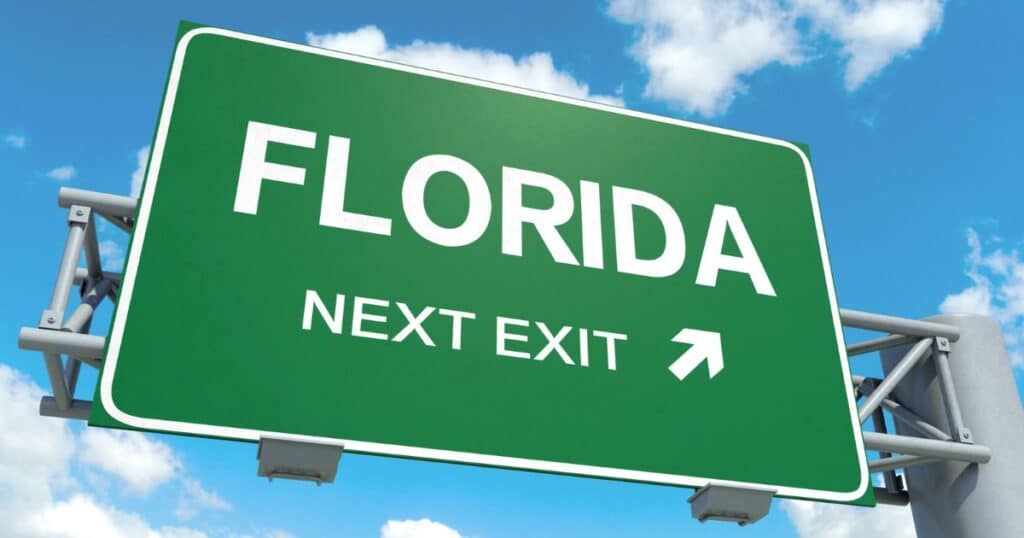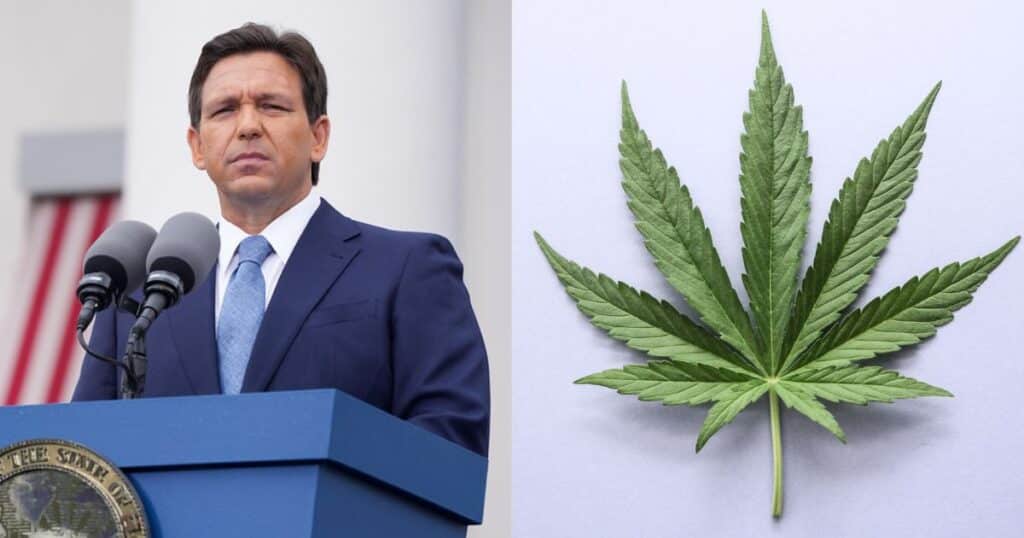The battle over cannabis legalization in Florida is heating up, and Governor Ron DeSantis finds himself in the thick of the conflict. With a political action committee (PAC) that has raised a mere $10,000, DeSantis is up against the well-funded Smart & Safe Florida campaign, which boasts over $60 million. The stage is set for a showdown that will determine the future of adult-use cannabis in the Sunshine State.
Cannabis legalization is more than just a trending topic. For many Floridians, it represents progress, medical benefits, and economic opportunity. With polls showing significant support for legalization among voters, the outcome of this debate will have far-reaching implications for personal freedom, public health, and the state’s economy.

DeSantis’ Anti-Cannabis Legalization Campaign
Governor DeSantis and the Florida GOP launched the Florida Freedom Fund to oppose Amendment 3, which seeks to legalize adult-use cannabis in Florida. Despite its ambitious goals, the fund has only raised $10,000 in its first five weeks, according to a report from Florida Politics.
This sum pales in comparison to the massive financial backing of the pro-legalization movement of the Smart & Safe Florida campaign, which has over $60 million in financial contributions. The campaign has mainly been funded by the largest cannabis company in Florida, Trulieve. After the initiative was allowed on the ballot this upcoming November, other MSOs in the Florida cannabis industry also contributed millions towards the finances.
DeSantis argues that legalizing cannabis would turn Florida into a state where people can “do marijuana wherever you want.” He claims this would harm the quality of life for residents and likens the potential impact to that seen in cities like San Francisco and Chicago. His alarmist rhetoric includes concerns about the smell of cannabis and the potential for increased public consumption.
“We already have medical marijuana, it’s out there. But we got to keep our streets clean, we cannot have every town smelling like marijuana.”
The slow fundraising start has led many to question the enthusiasm among DeSantis’ supporters for his anti-cannabis stance. With only one donor, former Republican Congressman Keith Rothfus, the campaign appears to be struggling to gain traction. This lack of financial support could spell doom for the efforts to defeat Amendment 3.
Limitations of the Smart & Safe Florida Campaign
While the Smart & Safe Florida campaign represents a significant step forward for cannabis legalization in the state, it is far from perfect. Due to Florida’s stringent regulatory framework, the campaign addresses only a narrow scope of issues, leaving critical areas neglected.
One glaring omission is the lack of social equity provisions. The proposed legislation does not offer any form of redress or assistance for individuals and communities who have been disproportionately affected by the war on drugs. Social equity programs are essential to ensure that those who suffered the most under punitive drug laws have opportunities to participate in the legal cannabis market.
Additionally, the campaign does not include any provisions for home-grown cannabis, which has been a cornerstone of personal freedom and self-sufficiency in many other states that have legalized cannabis. This absence not only limits consumer choice but also perpetuates the reliance on commercial sales channels.
Another significant concern is that the proposal, as written, permits only established medical marijuana companies in Florida to transition into recreational sales. This exclusivity could pave the way for a monopolistic market structure, stifling competition and innovation while benefiting a select few.
Ironically, the main proponents of this initiative are Trulieve and other large medical marijuana companies that dominate the market. These companies stand to profit enormously—potentially raking in millions if not billions, should the amendment pass.
While undoubtedly making progress, the Smart & Safe Florida campaign’s current limitations highlight the need for a more inclusive and equitable approach to cannabis legalization in FLorida.
Rescheduling Isn’t Enough
The debate over cannabis legalization in Florida is a microcosm of a broader national conversation. Governor DeSantis’ efforts to oppose Amendment 3 face an uphill battle against a well-funded and popular pro-legalization movement.
With strong public support for legalization, it appears likely that Florida will join the growing list of states that have embraced cannabis reform, likely making it the 25th state to have an adult-use program. If Florida joins the other 24 states, it marks half of the United States has approved recreational cannabis, which begs the question: when will the national government follow suit? Rescheduling cannabis from a Schedule I to a Schedule III drug, which is currently under discussion, isn’t enough; we should remove it from the CSA entirely.

















